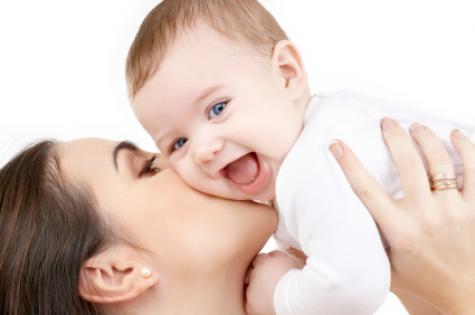For new and breastfeeding mothers, it's essential to consume a varied and balanced diet, rich in nutritious foods for your health and that of your baby.
The important nutrients are:
- protein - such as meat, chicken, fish, legumes, nuts, dairy foods and tofu. This helps with the growth, maintenance and repair of cells
- carbohydrates - you should include low glycaemic (GI) carbohydrates at every meal to keep your energy levels up and blood sugar stable
- dietary fibre - helps digestive health. Make sure you have three servings of whole grains such as brown rice, quinoa, oats, rye and corn every day. Eat two pieces of fresh fruit and five serves of veggies every day.
- calcium - it's amazing how many women don't get enough calcium. For breastfeeding mums, you should have up to 4 serves a day to protect bone strength. Try dairy foods like milk, cheese and yoghurt or fish such as salmon and sardine, or seeds, nuts and tofu.
If you're breastfeeding, you will burn up more energy (kilojoules) than usual so you should include 2-3 protein-rich snacks each day. When you're breastfeeding, different nutrients, energy and fluid will be in demand compared with when you were pregnant so make sure you include the following.
- iodine - you need double what you'd normally have. You can meet your requirements in food but you may need a supplement. Your GP will tell you this. You can find iodine in bread, iodised salt, seafood, eggs and dairy
- zinc - essential for skin health, immune function and reproductive healthy. You can find it in meat, breakfast cereal, bright coloured fruit and vegetables
- iron - check out this article on Motherpedia recently on the impact of iron deficiency. You can find it in green leafy vegetables and legumes. My favourites are tomato, broccoli and capsicum
- water - the best drink in the world! Have a glass with each meal and each breastfeed.
If breastfeeding, you should avoid:
- alcohol - for at least 4-6 weeks after birth. It takes about two hours to clear alcohol from your blood and breast milk
- caffeine - it's fine to have coffee and tea in moderation. I suggest no more than 2 cups of coffee (that's about 200g of caffeine) a day.
Most new mums are keen to lose weight. This usually happens within the first three months but if it doesn't, don't panic about it. It's important not to embark on any drastic 'crash diets' especially in the first six months after birth. The focus should be on a steady return to your pre-pregnancy weight, not rapid weight loss. This is best achieved through a healthy, balanced diet.
* * *
Find out more from Rhian's 7 Day Winter Warmer Weightloss Plan available from her website.



















__small.png)










